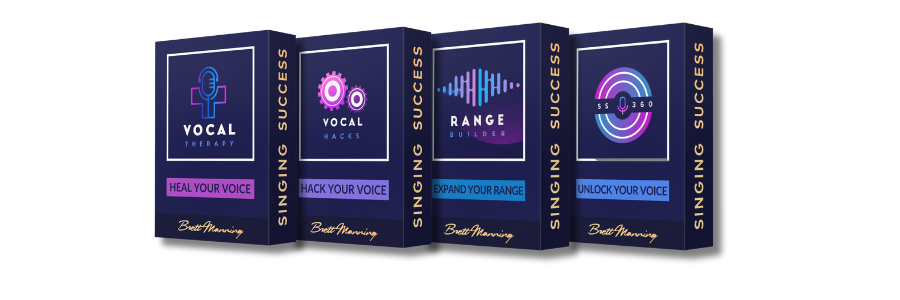To become a better, more effective singer, you need to become a stronger communicator and become a more effective storyteller.
The challenge for many singers is a tendency to either mask feelings or hide the story of a song behind technical skills. In other words, they may get so caught up in showcasing some aspect of their vocal ability, or get caught up in the arrangement of a song or the killer vibe of their band, that the meaning behind the song gets lost or becomes compromised.
Story Helps Sell The Song
The greater your understanding of the story in each song, the more gratifying the experience will be for your audience, and the more effectively you can use your technique and interpretive skills to enhance, reinforce, and add color and texture to a song’s story.
Fast-Track Your Success!!

VIP Membership includes:
- Exclusive Facebook Group
- Interact with our vocal coaches–ask them YOUR question
- Live warmups
- Masterclasses and Q&As with Brett Manning and his guests
- SS360 QuickStart Program
- SS360 – The FULL Systematic Vocal Course
- Vocal Hacks
- Range Builder
- Mastering Mix
- Mastering Harmony
- Mastering Vibrato
- Vocal Therapy
- Plus…exclusive content only found here all along the way!
You can struggle on your own, or you can get direct access to the Nashville Coaches who have launched some of the biggest names in the music industry.
Listen + Learn
As you learn a song, think of it as a conversation you’ve overheard. Read it without the melody and look at what grabs you, intrigues you, or has you wondering what is going on.
Then, speak the song through as if you are sharing the song as your own personal experience. Keep speaking it until it begins to prompt specific images as the story of the song begins to come to life for you.
Triggers + Cues
Let your imagination play for a while as you consider different scenarios for what has triggered the story of the song. Play with these until you have a full, clear, picture that rings true and moves you. Let the story of the song move you to the point of feeling vulnerable. You want that private moment that is real to come to life inside of you.
Each song will have different stories to tell. Some will be dark and disturbing while others will be light and even comically engaging. Some stories will be embarrassing to tell but all the more gratifying for the audience because they know that feeling.






